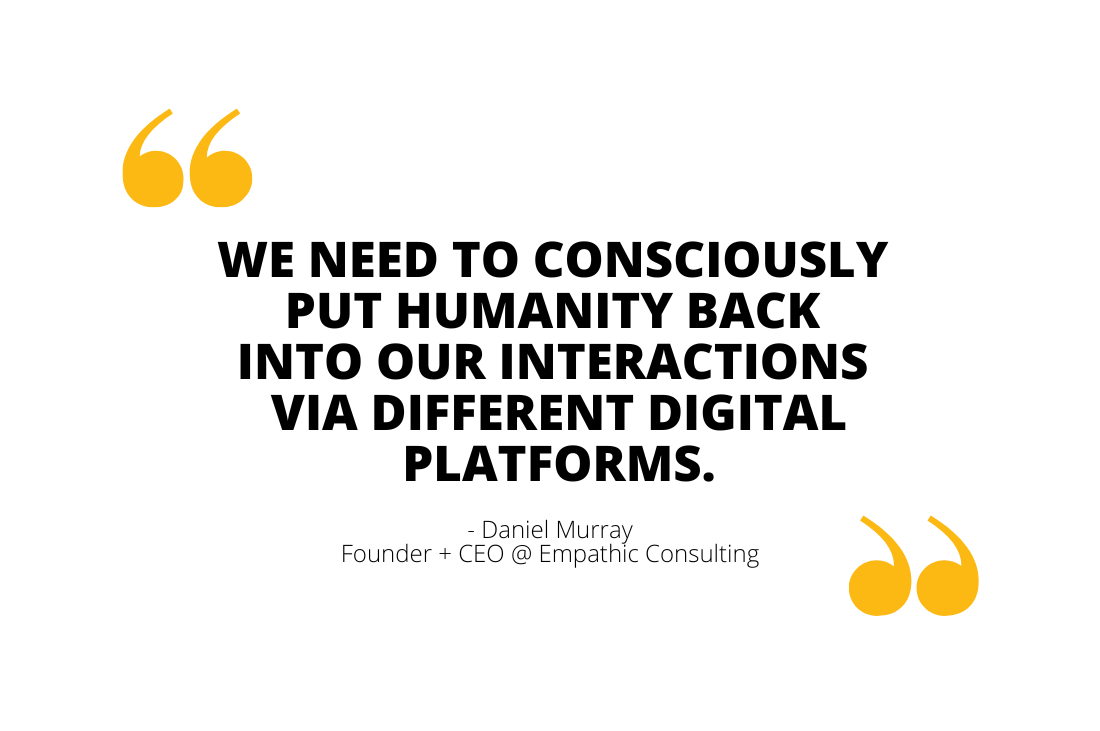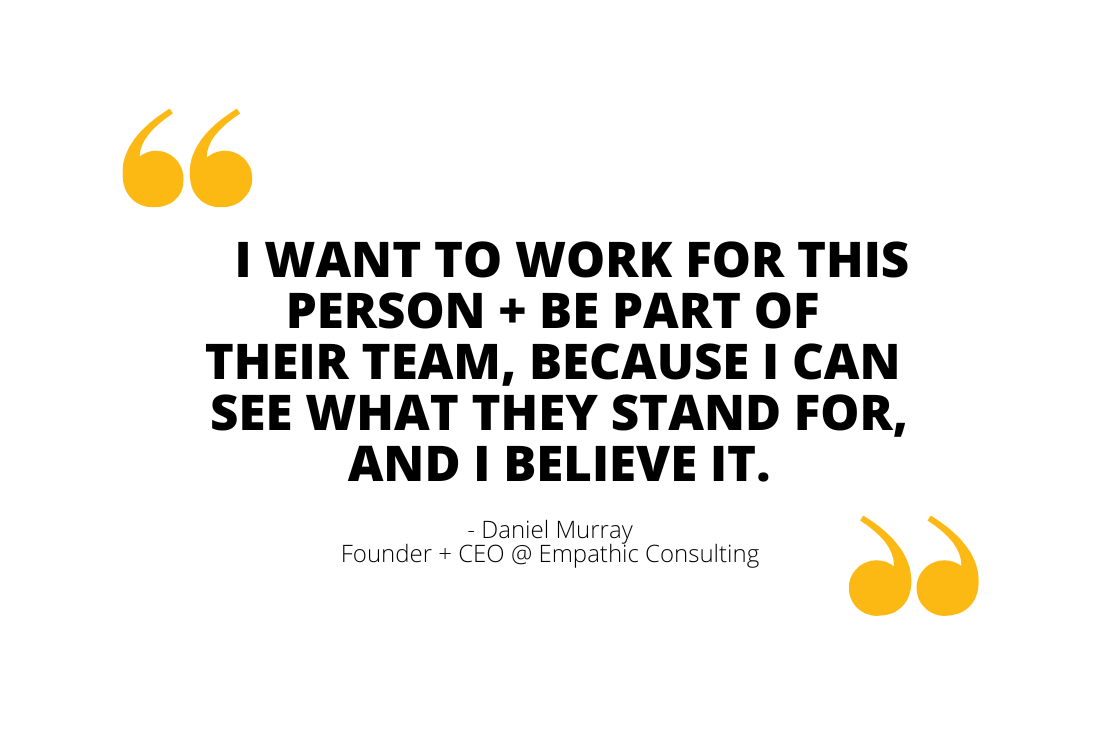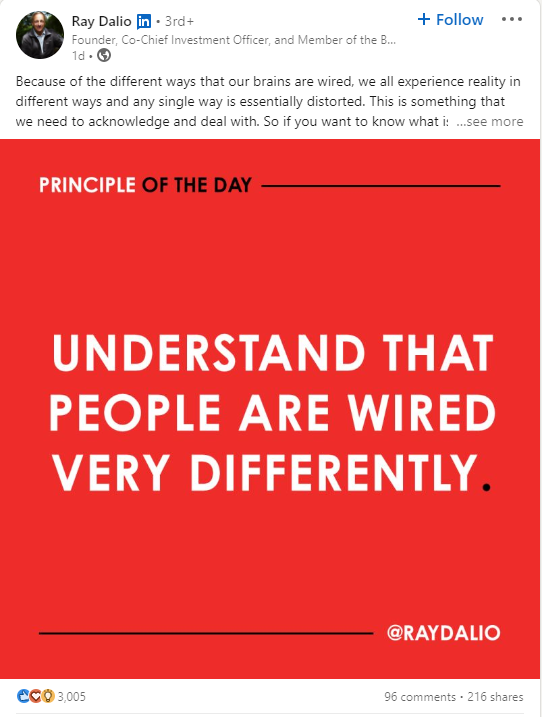In one of our earlier episodes on the Your Digital Reputation podcast, we spoke with leading alignment expert Zora Artis about this idea of ‘glass box brands’ and how social media has put corporate culture on display for the whole world to see. Conversations and issues that may previously have been hidden behind closed doors are now accessible in real-time, globally, via the public social web. And we’re not just talking brands here – this very much affects individual leaders too. Just have a look at Glassdoor to see leader ratings and verbatim feedback, warts and all …
Sounds frightening, right? But that’s the thing – it does not have to be. In fact, it can – and should – be seen as an enormous opportunity. Because when leaders get corporate culture right, these same digital platforms act like rocket fuel to comments and initiatives that amplify corporate culture. AND employees who are empowered can back their leaders, and sing their praises from the digital rooftops.

But you do need to get it right to survive the digital stress test. Our guest on this episode knows an awful lot about company culture, leadership and how to align values, behaviours and reputation across an organisation to do exactly that – to get it right. He’s also seen firsthand just how much pressure the widespread digital adoption we’ve seen through COVID has placed on leaders, particularly those whose words don’t translate into actions.
Daniel Murray is the CEO and Founder of Empathic Consulting, and in my opinion, he’s one of those people who just seems to see things others don’t. But maybe that’s because he has a degree in mathematics, background in corporate strategy and an insatiable appetite for storytelling while also focusing on empathic leadership for a living. Daniel, thank you for sharing your wonderfully diverse experience and wisdom with us on the show.
At a glance, together we cover:
- What leaders can do to survive the digital stress test and, ideally, even thrive online;
- How access to digital platforms and social media has changed the reputation game for organisations and leaders;
- What implications this has for leaders today – how must they adapt;
- Where things can go wrong if this is ignored or done in a tokenistic or even opportunistic way;
- And on the flip side, who does this well – best practice for leaders and leadership teams – and what you can learn from them.
Here’s a snapshot from our discussion. I hope you find it as valuable and insightful as I did.
The insights + advice.
Roger Christie: We’re in the thick of this idea of the great resignation, or as I know you refer to it, and far more optimistically, the great reconnection. Unemployment levels are at the lowest in decades. The stakes are incredibly hard for leaders and corporate culture fails to resonate with staff and candidates. So, what can leaders do to survive the digital stress test and ideally, even thrive online?
Daniel Murray: There are lots of different ways. The are several different levers that leaders can use; different types of tactics and techniques. We’re finding some are using really simple things like we just having a different type of zoom conversation. Or they start a certain page on Facebook group where people can have different conversations. Others are doing really simple things like let’s do a video update -0 this is what’s going on in my world – each day which is then shared on social media.
But we need to remember that at the end of the day, the platform is just a tool. It doesn’t do the job of creating the actual relationships. For leaders, it’s about using every technique and every opportunity they can to create that that sense of belonging within work groups. It’s easy to fall into the trap of throwing tasks back and forth to each other. So we need to consciously put humanity back into interactions via those different digital platforms. And this is where the great leaders do is being able to share some of those vulnerable aspects of themselves to create that ability for people to build trust in them.

Roger Christie: It comes down to leadership teams understanding what it is that they stand for, and then carrying this through in a digital environment – the walking the talk concept online. So, practically how do leadership teams do that in a digital environment?
Daniel Murray: Walking the talk is fundamental for organisations in general. If you went and looked at their company values across Australia’s top ASX 100, my guess is somewhere around 90% of them would be a small set of about five or six words – and they’re all identical.
Now if I’m an employee, or if I’m a customer or I want to know, do I want to work with you? I’m not going to go look at your values, because they’re going to be the same four, five or 10 words that everyone else has written down. These don’t help me understand what it’s like to work with you. They don’t tell me anything.
So where do I go to find out if I should work with you? More often than not, I’ll go to social media. I want to know who am I going to be working for and what do they believe? What do they care about? This is when people start to look in places like LinkedIn for the leaders who’ve got a strong presence. The leaders who share what they believe in and are having conversations that demonstrate their values.
Now the leadership team across the board might bring those to life slightly differently. If I’m thinking about a large financial services organisation, I want the people in say finance to talk differently to the person in marketing or the person in customer service. But I want to see this golden thread running through what they stand for, what they say and how they think. Those are people who are doing it really well. They build a following and people think I want to go work for this person. Be part of their team, because I can see what they stand for and importantly, I believe it.

Roger Christie: It would be an interesting exercise to look into how much time organisations are spending developing some of those corporate values and positioning statements that you’re talking about, and conversely, how much time they’re spending with their leaders, equipping them and giving them a voice online. Because at the end of the day, as you say, you’ve got to know where people are looking. And if they’re looking online, and these conversations aren’t being had online, and it’s buried in your website – it’s a waste of time.
Daniel Murray: Yeah. 100%. If corporate values simply sit on the back page of an annual report somewhere, maybe some analysts will read it. Maybe some shareholders will read it, but that’s not going to make the difference. It’s about genuinely embedding those values into your organisations as that’s where it starts to really make the difference. And that’s got to start with leaders. Leaders have to be very clear on what these messages are, what this meaning is, what these values are and then be able to demonstrate them. A great place to do that is via social media.
Digital leadership in practice.
Daniel Murray: I’d recommend having a look at people like Peter Harmer, the former CEO of IAG – you can sort of go back and see what he was putting out there during that time. Ray Dalio, Founder, Co-Chief Investment Officer at Bridgewater Associates is another leader who is very open about what he believes in and what he stands for.
On the flip side where people are getting it wrong, it’s harder to name names directly, but what I have definitely seen is organisations putting out positive social media campaigns while the organisation is struggling. I know during the issues AMP was having during the Royal Commission for example, the brand was still putting out social media posts that were glowing and everything was fine. And yet it was really well known within the networks that four out of five things were pretty dire and there were lots of people leaving the organisation. It’s a bit like the boy cried wolf, right? By saying everything’s fine when it’s not – people won’t believe you when you actually do the right thing.
Final takeaway.
Roger Christie: When talking about how leaders must demonstrate corporate values and culture in this digital world, you use this phrase around a golden thread. And I like this idea around the offline being connected and consistent through to the online, everything following suit. What really sits at the core is authenticity. And for me, that’s told through stories told by leaders and others.
DM: Exactly and let me give you a really practical tip to wrap up. If you’re a leader and you’re trying to attract new employees, and we all know that’s a big challenge, then do a short video or write an article or post about one of your employees to share it with the world online: “Hey, look, I just want to celebrate this person and how they demonstrated our values in these three ways. This was the story of the way they did it. and I’m so proud to share what our people do for our community and our customers.” Etc. Etc. It’s a really easy thing to do to share and to build this sense that you’re the leader and drive home how your people embody your corporate culture.
To hear more insights, follow Daniel on LinkedIn. Click here more information on Empathic Consulting.
To listen in full, head to Apple Podcasts, Spotify or wherever you get your podcasts.
Please subscribe, leave a review or drop Roger Christie a note with any thoughts from this conversation – we’d love to hear from you.

